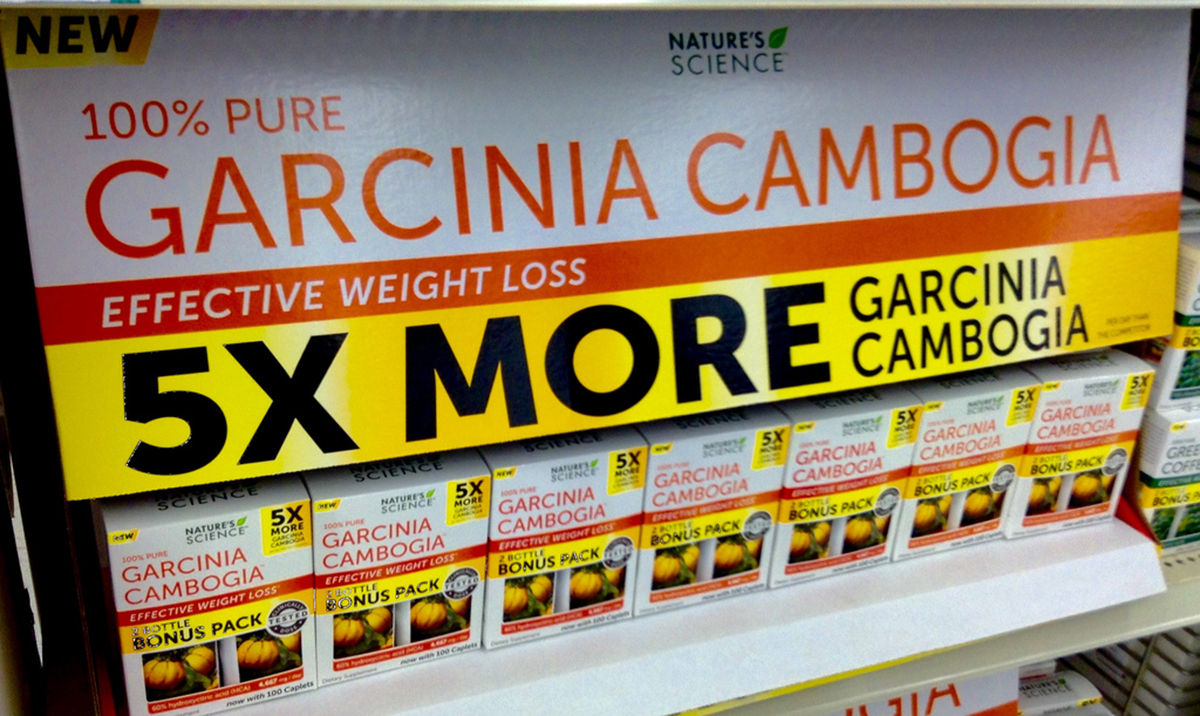Table of Contents
The next two herbs we will discuss are diet aids tend that have been implicated in liver damage.
3. Garcinia cambogia and Hydroxycut
Garcinia cambogia (now known by its updated scientific name Garcinia gummit-gutta) is a South Asian tropical fruit that looks a lot like a pumpkin, except that it grows on a tree. Garcinia is popular in weight loss formulas, particularly a now-banned product known as Hydroxycut.

The way garcinia helps people lose weight is through its content of hydroxycitric acid (which also affects its usefulness in cooking dishes such as sour curry). Unfortunately, when a product made with garcinia standardized to contain 50 percent hydroxycitric acid was tested in a weight loss trial by scientists at St Luke's–Roosevelt Hospital and Columbia University in New York City, taking garcinia was found to reduce weight loss. People who took the herb on average a kilogram (2 pounds) more than people who didn't at the end of 90 days.
Over 130 people developed liver failure after taking an older formulation of the weight loss aid Hydroxycut with Garcinia cambogia. Even the new product, which came out in 2015, has also caused some people to have severe liver inflammation. Two people have had to have liver transplants after taking just the herb.
There is a situation in which Garcinia actually does work for weight loss. People who are trying to lose weight by reducing calories, rather than by emphasizing protein, may get some benefits from taking the herb. But anyone who uses the herb should exercise caution.
4. Ephedra
Ephedra, also known by its Chinese name ma-huang, is one of the most important traditional Chinese herbs. It is used in hundreds of herbal formulas as a stimulant, usually to break up phlegm and ease congestion. Ephedra contains both ephedrine and pseudoephedrine. Because these chemicals can be cooked to make methamphetamine, the herb is almost completely banned in the United States and several other countries. It is still available, however, in Latin America, Asia, and some European countries that are not part of the European Union.
Liver injury is not the most common result of misusing ephedra products, but at least 10 people have had to have liver transplants after using weight loss products that contain ephedra. Liver damage can become irreversible in as little as six weeks of use. Like Garcinia, ephedra is an herb you simply shouldn't use except under medical supervision, and you won't be able to use legally in the United States. Ephedra is effective, but it's not always safe.
READ Herbs to Boost and Build a Healthy Immune System
5. Kava
Kava, also known as kava-kava, is an herbal preparation made by chewing the roots of the plant Piper mystericum. This peppery-tasting herb is chewed and spat out into a shared cup for a traditional kava ceremony not for those squeamish about germs. It is also processed into sleep aids and anxiety remedies that are used all over the world. Kava works in the way as benzodiazepine tranquilizers and it works quite well for relieving anxiety and insomnia.
Kava has been restricted at times in both the US and the EU due to over 100 reports of liver damage. If you were to read the actual medical reports about liver damage and this herb, you would find that most people who suffered serious liver damage after taking the herb already had serious liver problems, but kava can be the herb that puts their liver function "over the edge." If you have existing liver disease, kava is likely to be just too much.
- García-Cortés M, Robles-Díaz M, Ortega-Alonso A, Medina-Caliz I, Andrade RJ. Hepatotoxicity by Dietary Supplements: A Tabular Listing and Clinical Characteristics. Int J Mol Sci. 2016 Apr 9
- 17(4). pii: E537. doi: 10.3390/ijms17040537. Review. PMID: 27070596.
- Teschke R, Frenzel C, Schulze J, Schwarzenboeck A, Eickhoff A. Herbalife hepatotoxicity: Evaluation of cases with positive reexposure tests. World J Hepatol. 2013 Jul 27
- 5(7):353-63. doi: 10.4254/wjh.v5.i7.353. PMID: 23898368.
- Photo courtesy of theaudiochick: www.flickr.com/photos/theaudiochick/5385120043/
- Photo courtesy of jeepersmedia: www.flickr.com/photos/jeepersmedia/16361591807/
- Photo courtesy of jeepersmedia: www.flickr.com/photos/jeepersmedia/16361591807/
- Photo courtesy of theaudiochick: www.flickr.com/photos/theaudiochick/5385120043/

